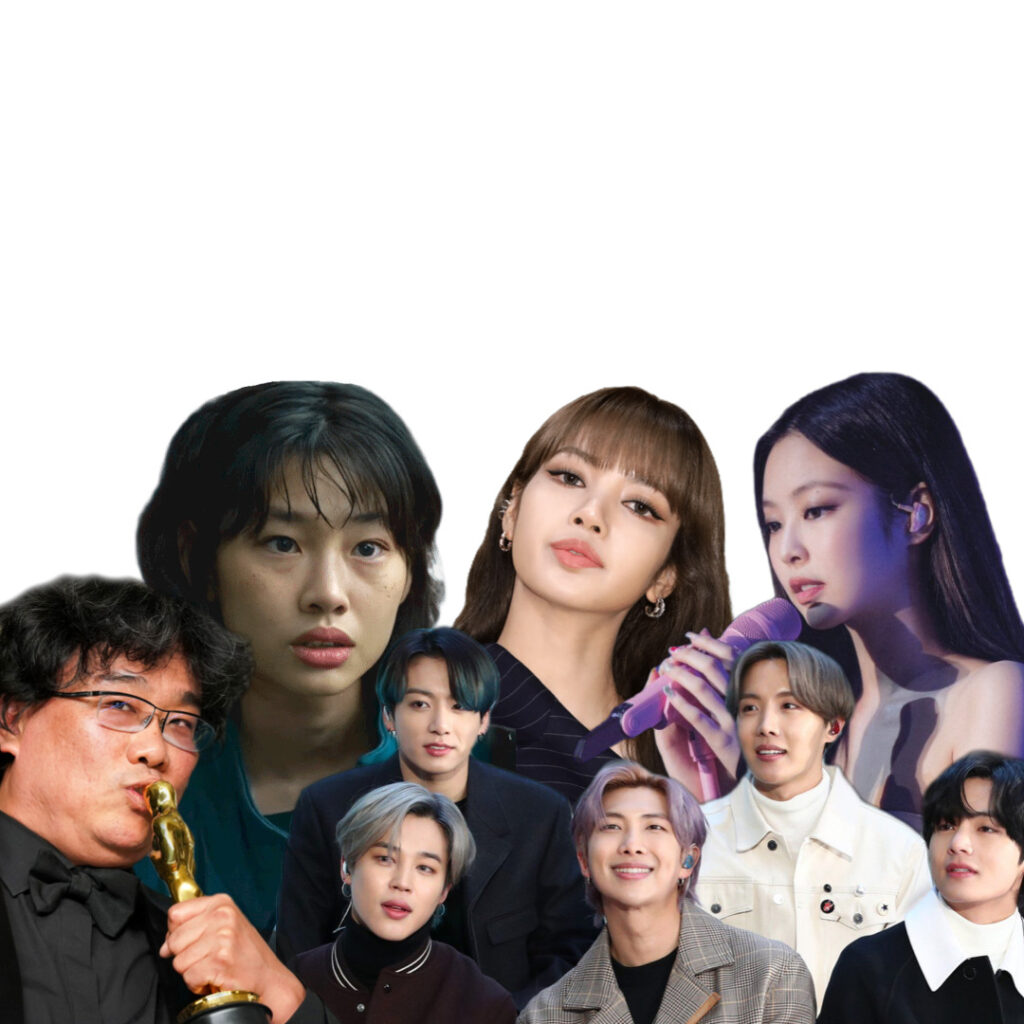Around this time last year, the South Korean television series ‘Squid Game,’ released by Netflix, took the world by storm. Audiences spent their time recreating the famous Dalgona candy, scratching out shapes with a pin and dressing up in green tracksuits with their friends for Halloween.
Popular Youtuber Mr Beast even created a YouTube video titled “$456,000 Squid Game in Real Life!” that has generated over 293 million views to date. Now, Netflix is in the process of creating a reality television show inspired by ‘Squid Game’ — recruiting 456 English-speaking individuals to compete in a similar contest to earn prize money.
With over 1.65 billion hours watched within its first month of release, there is no doubt that this drama has made an incredible impact on Korean cultural exchanges across the globe. Just a year previously in 2020, the South Korean film ‘Parasite’ took four Oscars and became the first foreign language film to win the top prize of Best Picture at the Academy Awards.
It’s not just the Korean film industry dominating global markets. K-pop, K-beauty, K-food, webtoons, games and other media exports created almost $10 billion USD for the economy in 2018 alone.
This exportation of Korean entertainment is coined as the term ‘Hallyu’ (한류), or ‘the Korean wave’ with the words ‘han’ (meaning Korea), and ‘ryu’ (meaning wave). However, the definition of Hallyu is more than just a trend of media — it is a literal wave of economic, social, cultural and political strategies by the South Korean government in the form of soft power. Joseph Nye, the father of soft power, explains that it’s all about promoting culture, political values and foreign policies to other parties to view them as “legitimate and having moral authority.”
So how has South Korean entertainment become so successful abroad?
There are a few political reasons, as South Korea has a lot of similarities with Western nations regarding support for democratic governments and free markets. The world has a positive view of the nation — Korea hasn’t been known as an aggressor or instigator for over a thousand years.
Korean entertainment is also incredibly unique compared to much of Western media. In K-pop, the industry is entirely different as music videos are vibrant and designed to be beautiful and aesthetically pleasing to the eye. Companies give these videos large budgets and producers make them complex — striving for perfection. K-pop idols train for years in polishing dancing skills, creating an entertaining performance that is more than just a song.
To promote their songs, K-pop artists go on daily music shows hosted by the country’s top television stations. Artists also keep close connections with fans through live streams and ‘fansigns’ where fans buy albums to win a chance to talk to an idol in person.
In the film industry, directors do not shy away from telling dark stories that affect societies in Korea and abroad. ‘Parasite’ and ‘Squid Game’ share stories of class struggle and income inequality. These themes of the dark sides of capitalism are shown through aspects that are uniquely Korean, yet are also relatable in countries such as the United States.
‘Parasite’ shows the reality of a family living in a semi-basement space (Banjiha): known in Korea as homes for low-income residents. It also shows the effects of flooding in these homes during the country’s monsoon season.
This presentation raises domestic awareness to change living conditions. It worked, as Seoul has recently decided to phase out the semi-based apartment spaces. ‘Parasite’ has successfully shared the story of inequality in Korea yet also portrays the same ideas in international audiences “without relying on [foreign]cultural references to make it relevant.”
The government has created policies to increase Hallyu’s success – like removing various quotas for showing media abroad and investing in vertical entertainment productions — to give the industry the financial groundwork to grow. One of the most notable examples of this soft power is the partnership between Hankuk University and Big Hit Entertainment to create Korean language textbooks featuring BTS to encourage fans abroad to learn the language.
To illustrate the growth of Hallyu and its growing impact on relations with the United States and other Western countries, a timeline of events portrays the relationship.
1987: Government reform and the democratization of media
After calls for democracy and reform of the government in June 1987, President Roh Tae-Woo created a free press without government intervention. Hallyu wouldn’t have been possible without this reform and the country was able to flourish at a time of globalization and rapid technology expansion.
1992-1996: Seo Taiji and Boys
Cited as the first K-pop group, Seo Taiji and Boys sang about teen angst and going against societal norms. Their song “I Know” was the first time American pop-music influence was seen in a Korean song.
2002: ‘Winter Sonata’
This K-drama is credited as one of the jumpstarters of Hallyu as it aired throughout Asia, gaining an average viewership of 14% throughout Japan.
2009: Wonder Girls ‘Nobody’ enters Billboard Hot-100
Following the release of ‘Nobody’ English version by the K-pop group Wonder Girls, it reached No. 76 on the Billboard Hot-100 chart. This began the spread of K-pop in the United States and other artists including BoA, 2NE1, BIGBANG, Girls Generation and Super Junior gained popularity abroad.
2012: Gangnam Style
Everybody knows ‘Gangnam Style’ by PSY. The music video currently has over 4.5 billion views on YouTube. This showed the world what could be achieved by K-pop artists and further, what could be accomplished in western media by artists who don’t create in English.
2016: ‘Guardian: Lonely and Great God’
This immensely popular K-drama, featuring actors including Gong Yoo, who has also made appearances in ‘Train to Busan’, ‘Squid Game’ and ‘The Silent Sea’, was released on Netflix for multiple countries abroad. The Korea Times, states that its popularity abroad is due to its unique and creative storyline.
2018: Pyeongchang Olympics
The opening ceremony included performances by K-pop acts CL and EXO in order to show that Korea’s culture is welcomed abroad and a part of the world’s community.
2020: Parasite wins four Oscars
Breaking many records, Parasite won four Oscars, proof of the advancement of Hallyu in the United States.
2021: ‘Squid Game’
The success of ‘Squid Game’ portrays the potential for even greater accomplishments for Korean films in the future.
2021: BTS wins Artist of the Year at the American Music Awards
This monumental moment was acknowledged by the president of Korea at the time, Moon Jae-In, who congratulated them.
2022: ‘Squid Game’ wins six Emmys
Most recently, Squid Game took home six Emmys and was called a “cultural powerhouse” by the New York Times.
The success of Hallyu and Korean media abroad is undeniable. The spread of Korean culture, the growth of the economy and positive political relations with the United States and other Western nations all indicate that South Korea has a bright future ahead.
BTS was recently appointed as the Special Presidential Envoy for Future Generations and Culture by President Moon. They were given this position ahead of the 2021 UN National Assembly, speaking about sustainability and the environment to appeal to younger generations worldwide.
So, what does the future of South Korean soft power look like? Hallyu is growing exponentially, and the wave is growing bigger and bigger. South Korea is undoubtedly on the track to becoming a cultural superpower.







